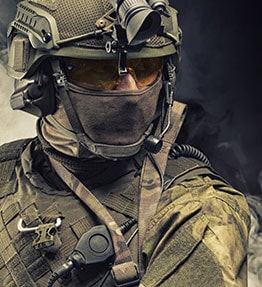Thinnest Lightweight Body Armor Leads to Lower Quality Protection

N.I. Teijin Shoji, Inc. is an ambitious company that sells compound textiles of synthetic fibers for women's clothing to apparel companies, as well as interior applications to converters in the United States. The company also offers sheet sets of woven materials for heat-resistant clothing, including bullet-resistant materials. In recent times, they have agreed to pay $1.5 million to resolve serious accusations under the False Claims Act in connection with the companies’ importation and sale of defective Zylon fiber. This material was used as the key ballistic ingredient in defective bulletproof vests.
The Teijin companies imported the fiber on behalf of the Zylon manufacturer, Toyobo Co. Ltd. of Japan. The United States alleged that the Teijin companies were aware that the fiber degraded quickly over time and that this degradation rendered bulletproof vests containing their woven Zylon unfit for use. The government further alleged that despite this knowledge Teijin companies did not inform the United States of any degradation concerns or stop selling Zylon fiber for ballistic applications. In 2002, Teijin purchased Zylon fabric back from a Canadian weaver to whom it had sold the fiber; they would then sell it directly to American body armor manufacturers. For fear of possible liability, the weaver itself had refused to sell the fabric. As part of a larger investigation of the body armor industry’s use of Zylon in body armor, this settlement will keep the whole industry on its toes. The United States has already accrued $59 million-plus in settlements with eight other contributors in the Zylon body armor industry. Moreover, the federal government has pending lawsuits against Toyobo Co. and several vest manufacturers. As part of current agreements, Teijin will be involved in the government’s impending investigation.
In the modern bulletproof industry, Kevlar is the most prominent material used by law enforcement and military personnel. Kevlar is a material that has been instrumental in bulletproof apparel since the 1960s. It has proven to be the most reliable, and it’s also less expensive to produce than Zylon.
 US
US UK
UK SE
SE NL
NL FR
FR ES
ES DE
DE







